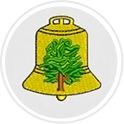Mathematics
Subject Coordinator: Mr Harrison
DFE Programme of Study
Primary National Curriculum Mathematics.pdf
Curriculum Intent, Implementation and Impact
Mathematics - Intent, Implementation and Impact
Mathematics in EYFS
Mathematics in the EYFS
Knowledge and Skills Progression
Visit White Rose Maths to view our scheme of work.
Mathematics Policy
Calculation Policy
Vocabulary progression
This is what our children say about Mathematics at Renishaw Primary School.
Do you enjoy maths? Why?
Yes. Because you can do different calculations. (Y4)
It’s good to use your brain to figure out answers. (Y6)
What new knowledge have you learnt this term?
In algebra, when you have a letter and number together you multiply them. (Y6)
All equations don’t have to have an answer. (Y6)
If you have a question and switch the numbers around you still get the same answer. 5 x 10 = 50, 10 x 5 = 50 (Y4)
If it is a take-away then they are not commutative. (Y6)
My 4 times tables (Y3)
Didn’t know how to round to the nearest 10,000 or 100,000 (Y5)
I couldn’t count in 50s but now I am getting better (Y5)
I have learnt that when you count in 50s it goes into your 100s, too (Y3).
How do you know if you have produced good work in maths?
Getting lots of answers right and showing your working out (Y5)
When your work is neat and you are proud of your presentation. (Y6)
When you have worked it out yourself and don’t ask others for help. You persevere. (Y6)
When you look in your maths book the next day you might see a comment from the teacher in green pen. (Y5)
How do you find your work in maths: challenging, too hard, too easy?
Is it ok to find the work challenging?
At the start of lessons it starts easy and then progresses harder and harder. (Y6)
Yes, because when it is challenging you gets your brain smarter because you’re having to think more. (Y4)
It’s fine, because not everything you do in life is easy. (Y6)
Find it just right because this year started off easy but it is getting harder (Y3)
If you get a question wrong you might figure out what to do. (Y5)
Yes, because if you get the question wrong you can redo it and might figure out what you’ve done wrong. (Y3)
It doesn’t matter if you get a question wrong. You can always learn from it. (Y5)
What helps you learn in maths?
Your mistakes, because if you make a mistake you can learn from it and you might get it right later on. (Y5)
The teachers, asking people for help and trying to work it out yourself. (Y6)
When the teacher is teaching you learn how you are going to do the work. (Y6)
Use the equipment in the classroom then ask a friend and then finally ask the teacher. (Y6)
Writing any working out on paper because when you are stuck you can look over it to help you. (Y6)
When the classroom is quiet and I can concentrate (Y5)
